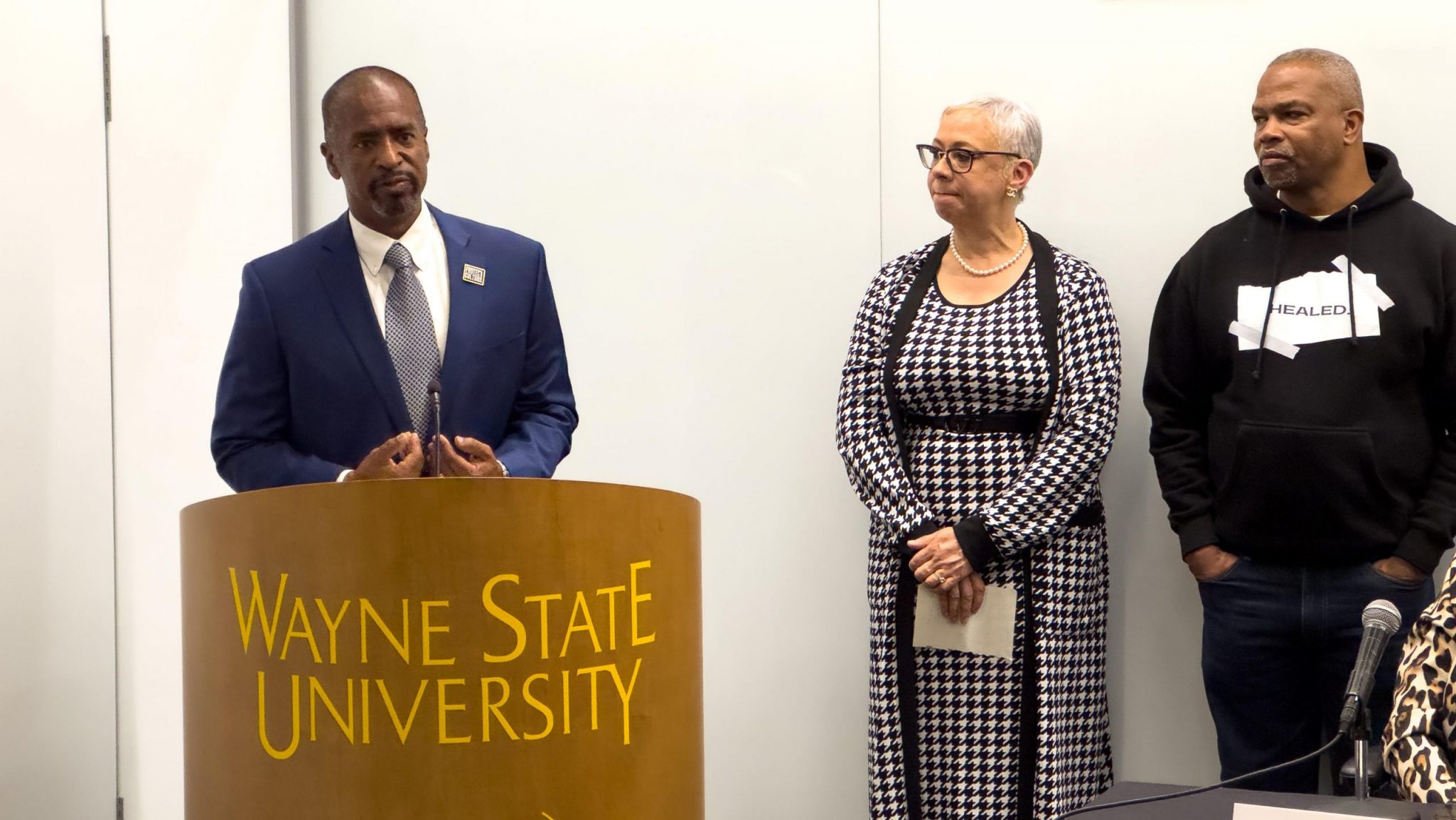Efforts to end flavored tobacco product sales in Detroit get a boost from the CDC
If Detroit City Council gets its way, menthol cigarettes and flavored vapes would be banned.

Detroit City Councilman Scott Benson discusses efforts to ban flavored tobacco in the city.
The Centers for Disease Control and Prevention back up claims by Detroit officials that the city would be better off ending the sale of flavored tobacco.
Last week, Detroit City Council passed a resolution that asked the Michigan legislature to ban the sale of flavored tobacco products statewide, or give cities the ability to outlaw them.
The CDC brought its TIPS smoking cessation campaign to Wayne State University on Wednesday.
Detroit City Councilmember Scott Benson echoed his plea with state lawmakers.
“If you don’t want to do that (ban flavored tobacco) at the state level, give us the opportunity, we’ll do it ourselves,” Benson said. “We can regulate ourselves much better than anybody in Lansing can. So we’re hoping to get that opportunity.”
According to data provided by the CDC, 17% of Michigan adults are smokers. 4.5% of children in the state smoke.
That makes community activist Darryl Woods angry, because he knows the kids have to buy tobacco somewhere.
“We want our merchants to know — and we want the gangsters in these tobacco companies to know — that we will not tolerate you poisoning our children.”
“We will not tolerate you poisoning our children.” — community activist Darryl Woods
Councilmember Benson relayed a story about recent sting operations run by the city that involved kids attempting to buy tobacco products from convenience stores and gas stations. He said 16 of 22 stores in the sting sold the products to minors.
“If you want to sell tobacco to youth, let’s take your license,” Benson said.
In 2019, Governor Gretchen Whitmer attempted to ban the sale of flavored vapes in Michigan via a public health order. That move drew heavy criticism from Republicans, convenience store owners and the vaping industry. It’s likely the now-Democrat led state legislature would attempt to pass bills, but leaders have been hesitant to do so before working on a state budget.
In addition to flavored vapes, Detroit would also like to ban menthol cigarettes, which are popular amongst the Black community.
Tiffany R. is working with the CDC to describe her own struggle with nicotine addiction. She started smoking when she was 19.
“I will say that the menthol masked the harshness of the cigarette and made it easier for me to smoke it made it easier for me to smoke more often.”
Wayne State University Associate Professor David Ledgerwood, Ph.D., serves as the director of the school’s Nicotine and Tobacco Research Division.
“Most people who do try and quit smoking trying to do it through ‘cold turkey,’ they do it without any any support,” Ledgerwood says. “But there’s medications and resources out there to help people to stop smoking, including FDA-approved medications that are over-the-counter and available by prescription. And it’s important that people who smoke go and talk to their family doctors and talk about their options.”
Trusted, accurate, up-to-date.
WDET strives to make our journalism accessible to everyone. As a public media institution, we maintain our journalistic integrity through independent support from readers like you. If you value WDET as your source of news, music and conversation, please make a gift today.
